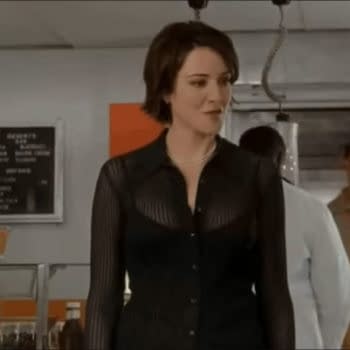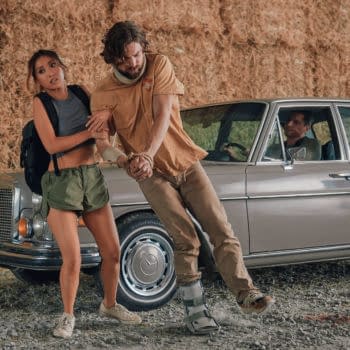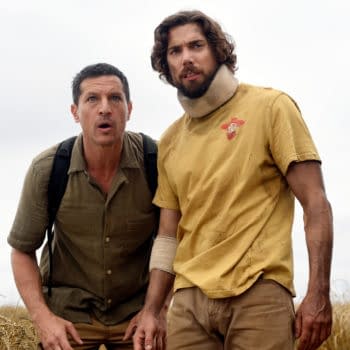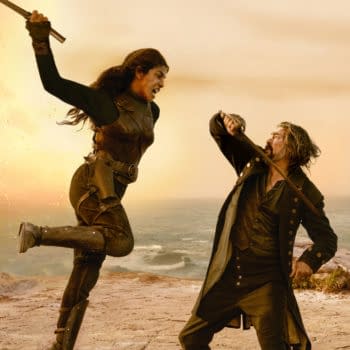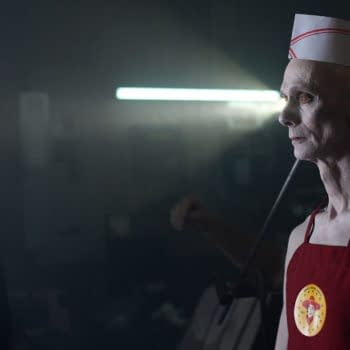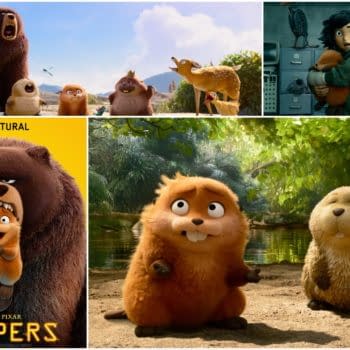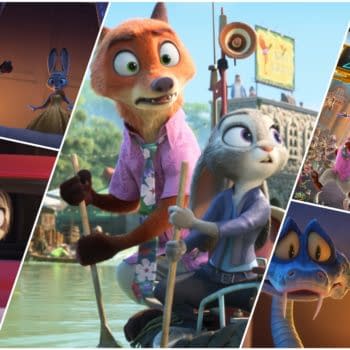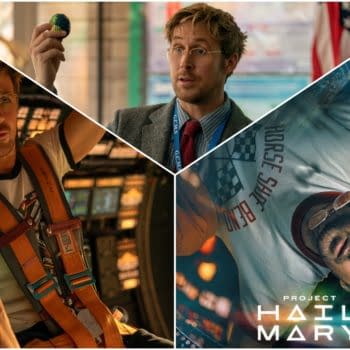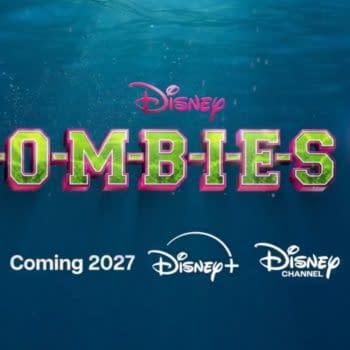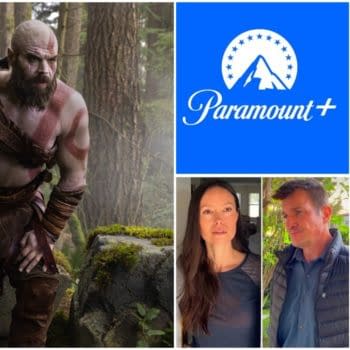Posted in: Exclusive, Interview, Movies | Tagged: dolph lundgren, frank grillo, Hiram A Murray, Operation Seawolf, Shout! Factory, Steven Luke
Operation Seawolf Dir Steven Luke & Star Hiram Murray on War Realism
Things writer-director Steven Luke and star Hiram A Murray pride on in their war drama Operation Seawolf are accuracies and the human experience. Luke's previous works in Battle of the Bulge: Winter War (2020), The Great War (2019), and Wunderland (2018) all reflect his passion for combat, which is astounding on an indie budget. For Murray, it was an opportunity to reflect on his military background and play a pioneer in Navy captain Samuel L Gravely Jr. The film follows the final days of World War II when Germany riles up its last remaining U-Boats to attempt one final strike for the United States homeland. Both spoke to Bleeding Cool about how Luke's war films evolved over the years and how Operation Seawolf sets itself apart from others.
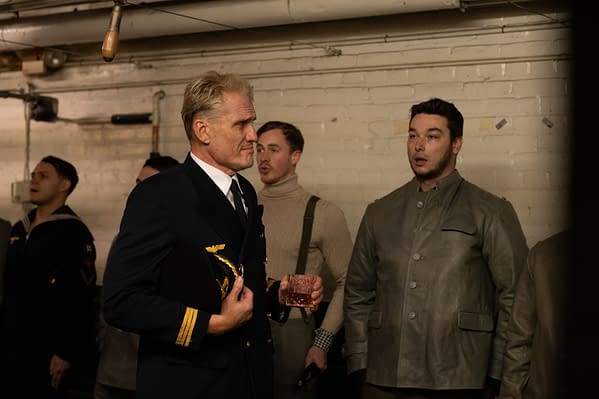
Bleeding Cool: Was there anything you did before that helped guide this production, or is that something that you had to isolate from and not repeat yourself?
Luke: One of the things I specialize in is historical movies because I'm a history major by trade. I'm drawn to those stories. I've done several films in the past that had been historical in nature, specifically in both World Wars. I have a lot of experience in terms of things that I know look good on camera and how to try to pull things off. I lean on those learning experiences of my past work to improve the next one that I'm making. Those all helped in making "Seawolf."
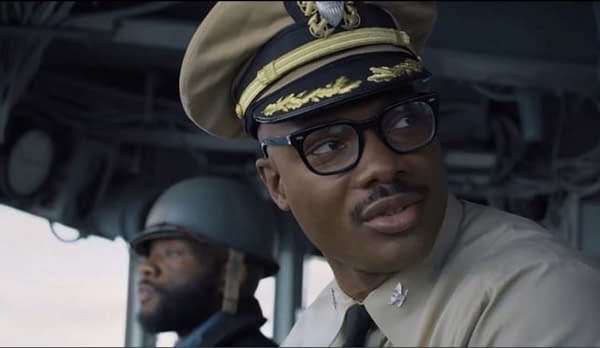
Hiriam, given the tech we've seen over time and how war movies are depicted in combat, do you feel like we're at a stage where technology can accurately capture all the different aspects of war?
Murray: With the advancement in technology in regards to like CGI, you can give the audience a better perspective on what you see on a battlefield. With stories like "Operation Seawolf," the human aspect of it is what we want the audience to take away from this and the more true-to-life experience. It's all fine and dandy for you to see an explosion or whatnot. Unless you're like watching a 4-D movie where the chair is moving, and you feel the heat and all that other stuff, it's still not going to be what you would actually feel on a battlefield with bullets flying past you.
CGI is great, but we're still not there yet. Maybe when we start watching movies with virtual reality later on in the future, it'll be close enough to the real thing. Stories like "Operation Seawolf," where you're getting into the mindset, that's what we want the audience to take away from this with the human aspect of it. The stories are getting better because, ultimately, that's what it is at its core. It's the human aspect of war. It's the commonalities between the Germans and the Americans in a leadership position in the heart and what we call "the burden of leadership." It's when you have to make decisions your men have to follow, not knowing whether or not they will come back from it. You, as the leader, are solely responsible for the lives that are following you.
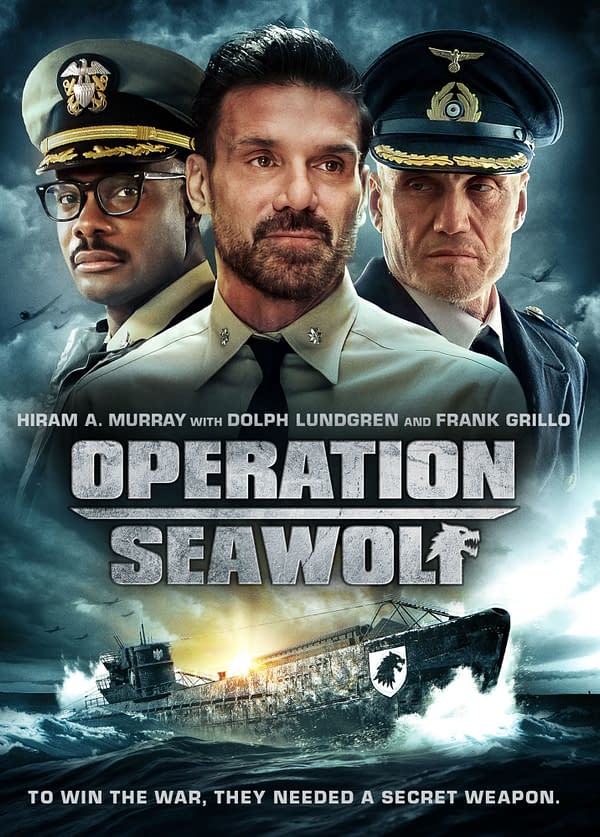
How has filmmaking changed in the post-pandemic world? Do you feel like the opportunities have opened up now, expanding audiences with the increased avenues from streaming?
Luke: Sometimes we have to work in and deal with personally, professionally, all those things in this post-pandemic world. It's been a tremendous opportunity for independent storytellers to shine. Now more than ever, independent filmmakers usually have limited resources to utilize to make their movies. I wouldn't say it's an even playing field now, but ultimately, [bigger studios are] lacking in their tools, just like most independent filmmakers are lacking in tools as well. Then it just comes down to, "What's the story I'm telling?" And "How can I ensure that's the best it can be?" If you can accomplish those things and bring your story to life, that's opened the doors for independent filmmakers…the indie genre to really shine and be successful.
Murray: The other side to that, and the cool thing is once the pandemic hit, it crushed the independent market in a sense; the only ones thriving were the big studio projects: the comic books films, the Marvel films, and stuff like that because they had the huge big budgets. But people got bored, and that caused the independent filmmakers now to hit them. Audiences are craving good stories, so it's making indie filmmakers now sought after. When you have stories that don't have the $200 million budget, it makes people want to pay attention. We're not looking at the whole big spectacle of the whole Marvel franchise and stuff like that. Nothing against it, and I love the Marvel franchise. When you don't have that big powerhouse behind you, it makes you focus on the story. When you have a good story, that's what the audience is craving for, and they see what a good story is.
Shout! Studios Operation Seawolf, which also stars Dolph Lundgren and Frank Grillo, is currently in theaters and on-demand, and on digital on October 25th.






